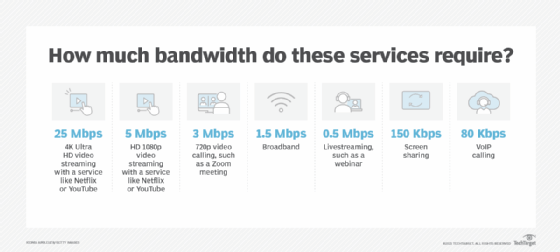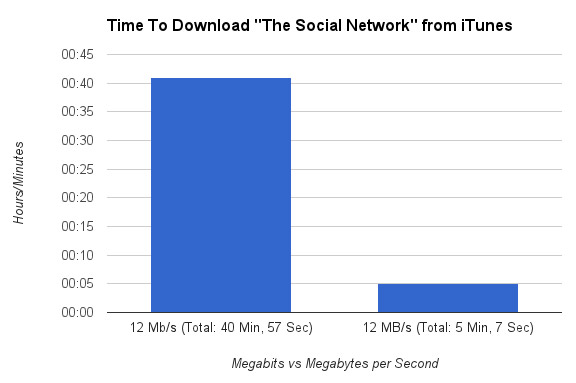Demystifying Megabits Per Second: What Customers Need to Know
Demystifying Megabits Per Second: What Customers Need to Know
Blog Article
Just How Megabits Per Second Impact Your Online Activities
The concept of megabits per second (Mbps) plays a crucial duty in forming our on-line experiences. As electronic tasks multiply, understanding the ramifications of Mbps on video gaming, video, and streaming conferencing ends up being significantly important. Greater Mbps can improve efficiency and reduce disturbances, while insufficient speeds might cultivate irritation and inefficiency. Examining your household's particular requirements in connection with these rates is essential, particularly as multiple devices try transmission capacity. The subtleties of exactly how Mbps influences numerous online tasks necessitate additional expedition, especially as our dependence on digital connectivity continues to evolve.
Comprehending Megabits Per Second
When thinking about web speed, it's vital to understand the idea of megabits per second (Mbps), which functions as a basic dimension for information transfer prices. This statistics evaluates exactly how much information can be transmitted over an internet link in one second, supplying a clear understanding of performance abilities - Megabits Per Second. For context, one megabit amounts to one million bits, and Mbps is typically made use of to share data transfer for different on the internet tasks
A higher Mbps shows a quicker internet connection, enabling customers to do tasks such as downloading files, searching internet sites, and taking part in online gaming extra successfully. Normal browsing needs around 1-5 Mbps, while streaming high-def video clip may require 5-25 Mbps. Understanding these requirements is important for figuring out the proper net speed required for particular tasks.
Additionally, the variety of tools attached to a network can influence overall performance. Multiple users streaming, video gaming, or downloading all at once can strain offered data transfer, leading to slower rates - Megabits Per Second. Evaluating individual online practices and requirements is crucial in picking a web plan that aligns with one's needs, making sure a seamless digital experience
Streaming and Buffering Issues
Streaming high-def content has actually ended up being a staple of modern online entertainment, yet it is typically gone along with by discouraging buffering concerns. These disturbances can substantially take away from the viewing experience, bring about dissatisfaction and possible loss of audience engagement. Buffering occurs when the data transmitted from the streaming solution is not received quickly sufficient to preserve a smooth playback, typically because of insufficient web speed measured in megabits per second (Mbps)

Furthermore, real-time streaming can be influenced by network congestion, which takes place when multiple devices share the same transmission capacity. Subsequently, optimizing link rate and ensuring adequate Mbps is essential for a smooth streaming experience. As streaming solutions proceed to progress, understanding the impact of Mbps on buffering problems stays vital for consumers looking for nonstop amusement.
Online Video Gaming Performance
The effect of web speed on on-line activities expands past streaming, dramatically influencing on-line video gaming performance. In affordable video gaming, reduced latency and high transmission capacity are essential for a smooth experience. A fast link reduces lag, allowing players like this to react promptly to in-game occasions, which can be the difference in between victory and loss.
Data transfer, determined in megabits per second (Mbps), plays a crucial role in sustaining numerous tools and gaming platforms all at once. Inadequate bandwidth can result in dropped links or reduced game top quality, adversely affecting gameplay. For example, on-line multiplayer games require significant information transfer, especially during peak video gaming hours when numerous players are online.
Furthermore, the kind of game can also dictate the essential net rate. Busy first-person shooters demand greater rates to maintain responsiveness, while turn-based technique games might work reasonably well on lower speeds. As online video gaming remains to evolve, with enhancing visual integrity and even more complicated multiplayer settings, the demand for greater Mbps will just escalate. Players need to guarantee they have appropriate net speed to enhance their video gaming efficiency and total experience. Purchasing a robust web connection is crucial for gamers wanting to optimize their efficiency and pleasure.
Video Clip Conferencing High Quality
In today's digital landscape, video conferencing high quality is heavily affected by internet rate, particularly in regards to data transfer and latency. High-grade video clip calls call for enough transmission capacity to transmit audio and video data perfectly. Generally, a minimum of 1.5 Mbps upload and download rates is advised for common meaning video, while high-definition video clip conferencing generally demands at the very least 3 Mbps.
Latency, or the delay in between sending and getting information, additionally plays a crucial duty in the user experience. Greater latency can lead to resemble, lag, and disjointed communications, which can hinder collaboration and engagement throughout meetings.
In addition, numerous participants in a video clip meeting can strain readily available transmission capacity, necessitating also higher speeds. Network congestion, typically brought on by synchronised activities like streaming websites or downloading, can further deteriorate video high quality. Thus, for companies relying upon video clip conferencing for remote partnership, comprehending the relationship in between megabits per second and total communication top quality is necessary for keeping efficiency and boosting online communications.
Choosing the Right Internet Plan
Picking a suitable web plan is important for making sure optimum efficiency in various on the internet activities, particularly in settings that demand high data transfer, such as video clip conferencing and online gaming. Megabits Per Second. When thinking about an internet strategy, it is crucial to evaluate both the speed and data allowance to match your specific use requirements
For families with numerous customers engaging in simultaneous activities, a plan offering greater megabits per second (Mbps) is recommended. Typically, a minimum of 25 Mbps is appropriate for conventional streaming and surfing, while strategies exceeding 100 Mbps are more suitable for even more intensive jobs. In addition, think about the nature of your online tasks; video clip conferencing calls for a minimum of 1.5 Mbps post speed, while on-line gaming may require a lower latency but constant connection.
Unlimited data strategies can prevent throttling and disruptions, particularly if heavy usage is prepared for. By attentively choosing an internet plan tailored to your requirements, you can enhance your on-line experience, guaranteeing smooth, undisturbed accessibility to your preferred activities.
Conclusion
In verdict, the relevance of megabits per second (Mbps) in shaping on-line tasks can not be overemphasized. A comprehensive understanding of individual or household Mbps requirements is essential for selecting an ideal internet plan that sufficiently sustains diverse online activities and customer needs.

Typically, a minimum of 25 Mbps is ideal for conventional streaming and browsing, while plans exceeding 100 Mbps are more suitable for more intensive tasks. Furthermore, take into consideration the nature of your online activities; video conferencing needs at the very least 1.5 Mbps post speed, while online gaming may require a lower latency yet consistent connection.
Report this page